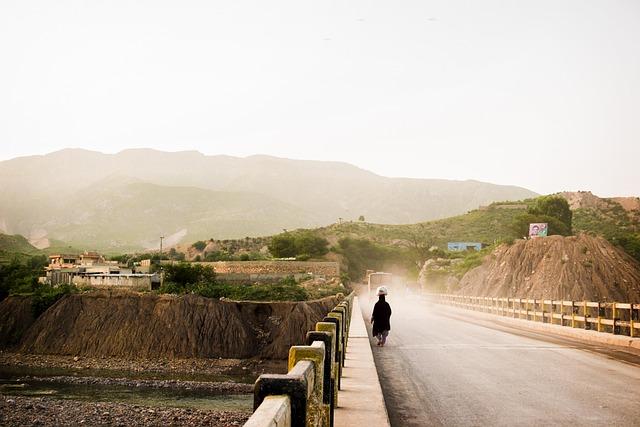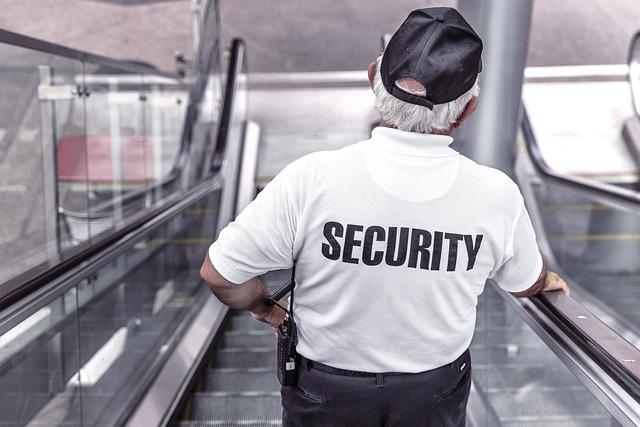In the heart of South Asia, where vibrant cultures intertwine and majestic landscapes tell tales of resilience, lies Pakistan—a nation marked by its rich history and tumultuous present. As the sun rises above the rugged mountains and bustling cities, it casts long shadows that stretch across the fabric of society. Among these shadows lurks an enduring specter: terrorism. Pakistan’s ongoing battle with this insidious threat is not merely a matter of national security; it is a profound struggle for identity, stability, and peace within its borders. This article delves into the complexities of this multifaceted challenge, exploring how centuries-old grievances, geopolitical dynamics, and the human spirit intertwine in a narrative that is both harrowing and hopeful. Join us as we navigate the depths of this ongoing conflict, illuminating the paths taken and the obstacles faced in the relentless pursuit of a safer, more secure future for all Pakistanis.
Understanding the Roots of Terrorism in Pakistan
To grasp the multifaceted issue of terrorism in Pakistan, it’s essential to delve into its historical, political, and socio-economic contexts. The legacy of conflict in the region, notably the prolonged struggle in Afghanistan, has left an indelible mark on Pakistan. This can be attributed to factors such as:
- Political Instability: Frequent changes in governance and lack of cohesive policy direction have fostered an environment ripe for extremist ideologies.
- Militant Ideologies: The rise of radical groups, often supported by external actors, has fueled domestic unrest and violence.
- Poverty and Unemployment: High levels of poverty create a fertile ground for recruitment by terrorist organizations.
Additionally, understanding the psychological and social undercurrents driving radicalization is crucial. Many individuals drawn into the fold of extremist groups seek a sense of belonging or purpose. From narratives of revenge to grievances against perceived injustices, such motivations contribute to the perpetuation of violence. Various efforts to counteract these influences include:
| Counter-Terrorism Strategies | Objective |
|---|---|
| Community Engagement | Building trust and addressing local grievances |
| Education Initiatives | Promoting critical thinking and awareness |
| Economic Development | Providing job opportunities to reduce recruitment |

The Role of Community Engagement in Countering Extremism
Community engagement acts as a powerful antidote to the allure of extremism by fostering resilience and promoting solidarity among diverse groups. In regions particularly affected by terrorism, active participation of local communities is essential in identifying and addressing underlying issues that may lead to radicalization. By creating safe spaces for dialogue, citizens can openly discuss their grievances and aspirations, leading to constructive ideas and collaborative problem-solving. Initiatives that encourage youth involvement in community projects not only build important skills but also strengthen social bonds that can deter extremist ideologies.
Moreover, the role of educational institutions is pivotal in this endeavor. Schools and universities can serve as platforms for critical thinking and awareness, equipping students with the tools to recognize and reject extremist narratives. Engaging parents and community leaders in these conversations is vital to creating an inclusive atmosphere that values peace and tolerance. Some effective strategies include:
- Workshops and seminars that highlight the dangers of extremism.
- Peer mentorship programs to guide youth away from radical thoughts.
- Community art projects that encourage expression of diverse viewpoints.
In the long run, fostering a culture of engagement not only counters the immediate threat of extremism but also nurtures an environment conducive to peace and coexistence, essential for the stability of the region.

Strengthening Security Frameworks: Policy and Implementation
The multifaceted challenge of terrorism in Pakistan necessitates a robust and adaptive security framework that not only responds to immediate threats but also addresses the underlying causes of extremism. To effectively combat terrorism, comprehensive policies must be formulated that emphasize intelligence sharing, community engagement, and capacity building among the law enforcement agencies. The inclusion of diverse stakeholders—ranging from local communities to international allies—can foster a culture of collaboration that strengthens the national resolve against terrorism. In this light, key components of an effective security framework may include:
- Enhanced Counter-Terrorism Operations: Implementing specialized training for security forces to handle urban terrorism more effectively.
- Legislative Reforms: Updating laws to allow for a more streamlined approach to prosecuting terror-related offenses.
- Community-Based Approaches: Engaging local populations in the fight against extremism through awareness programs and support for local initiatives.
Successful implementation of security policies requires continuous assessment and adaptation to the dynamic nature of terrorism. A transparent framework that encourages accountability can build public trust and deter potential recruits to extremist groups. To facilitate this, a transparent monitoring system should be developed that tracks both the implementation of policies and the effectiveness of operational strategies. Below is a simple illustration of key elements that could enhance monitoring and evaluation:
| Element | Description | Status |
|---|---|---|
| Policy Review Frequency | Quarterly evaluation of counter-terrorism policies. | ✔️ |
| Training Sessions | Regular training for law enforcement on new tactics and intelligence sharing. | ✔️ |
| Community Feedback | Collecting input from local communities on security measures. | 🔄 |

Building a Resilient Society through Education and Awareness
Education serves as a powerful tool in the fight against terrorism, promoting understanding and tolerance among individuals. By fostering a culture of awareness and critical thinking, educational institutions can help dismantle the narratives that fuel extremist ideologies. Consider implementing programs that focus on:
- Critical Thinking Skills: Encourage students to analyze and question information critically.
- Interfaith Dialogues: Promote discussions that bridge gaps between different communities.
- Conflict Resolution Strategies: Teach methods for resolving disagreements peacefully.
Meanwhile, raising awareness through community initiatives can galvanize public opinion against terrorism. Local organizations can play a pivotal role in disseminating information about the impacts of violence and the importance of social cohesion. A proactive approach might include:
- Workshops and Seminars: Conduct sessions that educate citizens about the signs of radicalization.
- Social Media Campaigns: Utilize platforms to spread messages of peace and resilience.
- Collaboration with Law Enforcement: Build trust between communities and police to enhance safety.
Insights and Conclusions
As we draw the curtains on this exploration of Pakistan’s tumultuous journey through the shadows of terrorism, it becomes clear that the path ahead is fraught with challenges yet brimming with potential for change. A nation’s struggle is often a tapestry woven from threads of resilience, courage, and a collective yearning for peace. While the scars of conflict are indelible, they also serve as reminders of human tenacity and the unyielding desire for a brighter future.
In facing the shadows, Pakistan continues to grapple not only with the remnants of history but also with the evolving landscape of extremism. The fight against terrorism is not merely a battle of arms but a call to address the root causes—educational disparities, economic inequities, and a quest for social justice. The journey ahead will demand collaboration, not just within its borders but with the international community, fostering understanding and solidarity in the pursuit of security and stability.
As we reflect on the complexities that define this landscape, let us hold onto the hope that through concerted efforts and unwavering determination, the dawn of peace can eventually pierce through even the darkest of nights. The story of Pakistan is still being written, and with each page, there lies the potential for healing, unity, and the triumph of the human spirit against the odds.



